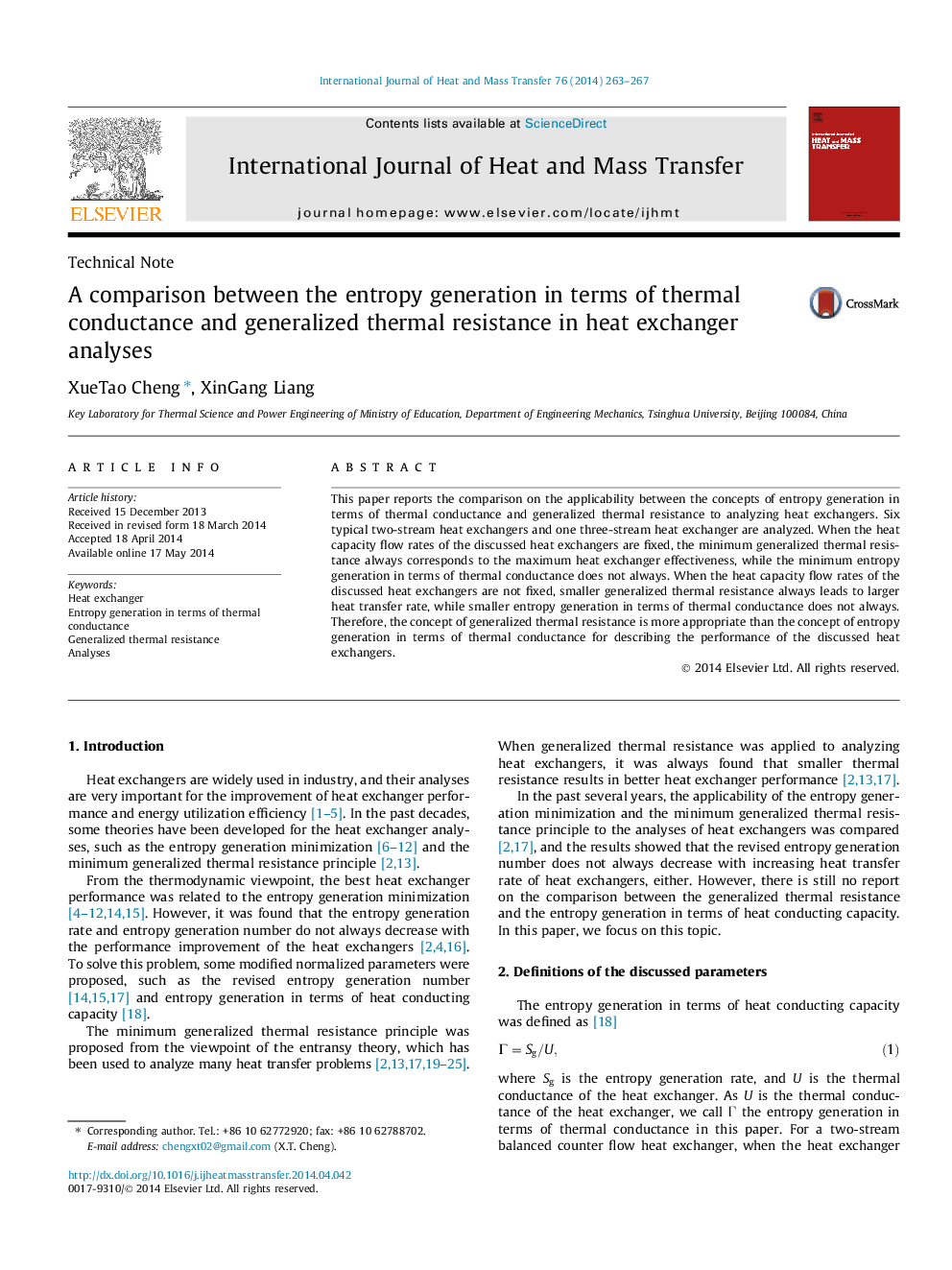| Article ID | Journal | Published Year | Pages | File Type |
|---|---|---|---|---|
| 7056907 | International Journal of Heat and Mass Transfer | 2014 | 5 Pages |
Abstract
This paper reports the comparison on the applicability between the concepts of entropy generation in terms of thermal conductance and generalized thermal resistance to analyzing heat exchangers. Six typical two-stream heat exchangers and one three-stream heat exchanger are analyzed. When the heat capacity flow rates of the discussed heat exchangers are fixed, the minimum generalized thermal resistance always corresponds to the maximum heat exchanger effectiveness, while the minimum entropy generation in terms of thermal conductance does not always. When the heat capacity flow rates of the discussed heat exchangers are not fixed, smaller generalized thermal resistance always leads to larger heat transfer rate, while smaller entropy generation in terms of thermal conductance does not always. Therefore, the concept of generalized thermal resistance is more appropriate than the concept of entropy generation in terms of thermal conductance for describing the performance of the discussed heat exchangers.
Keywords
Related Topics
Physical Sciences and Engineering
Chemical Engineering
Fluid Flow and Transfer Processes
Authors
XueTao Cheng, XinGang Liang,
